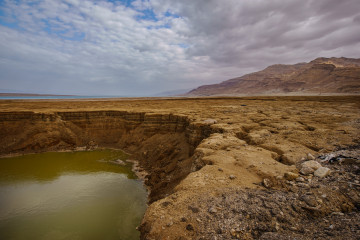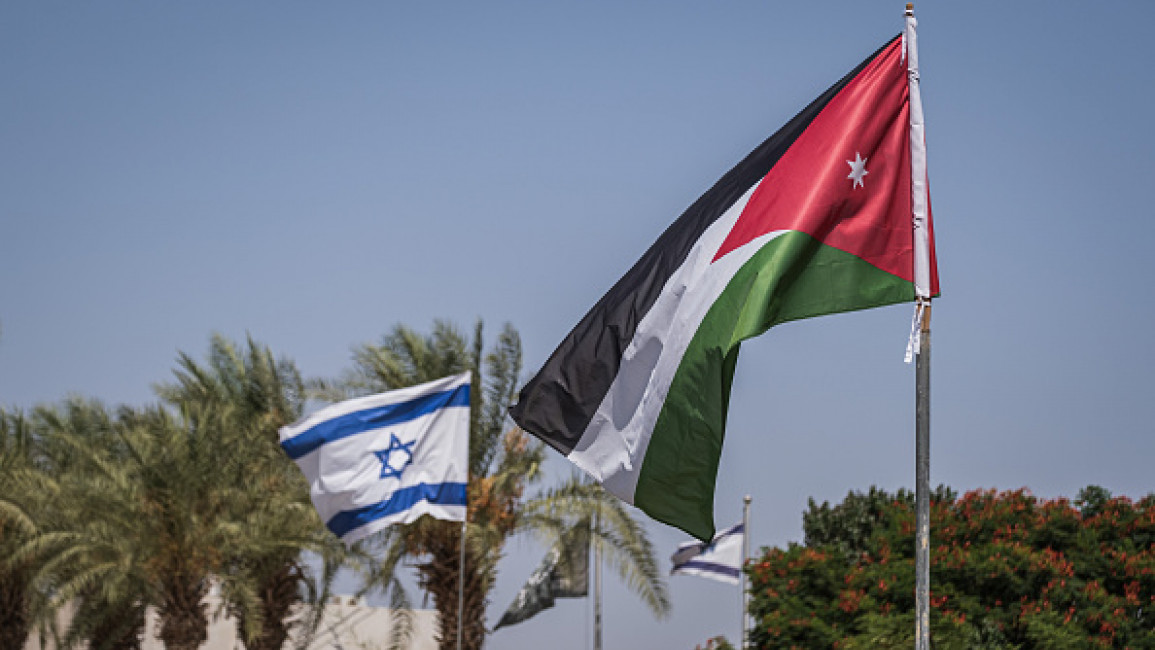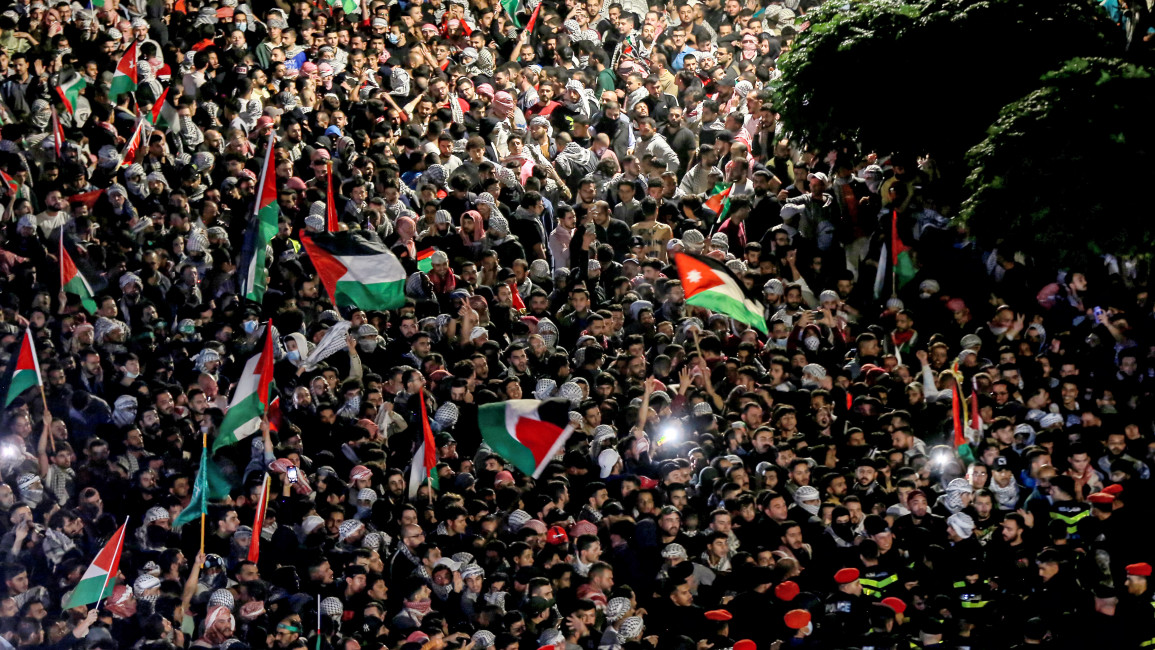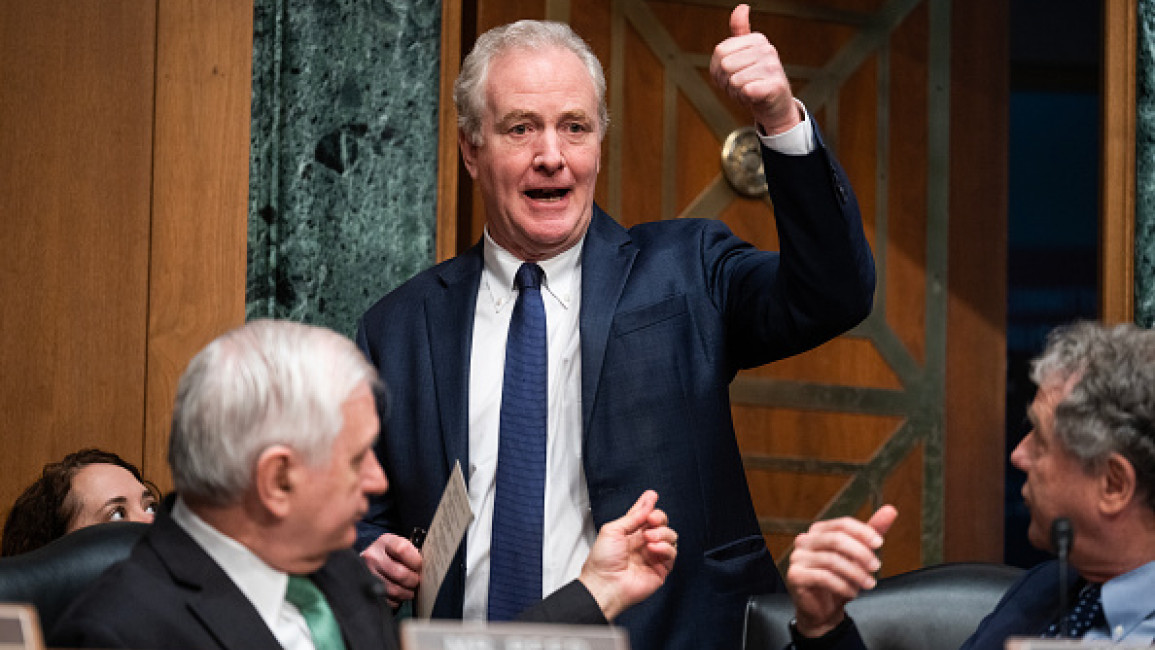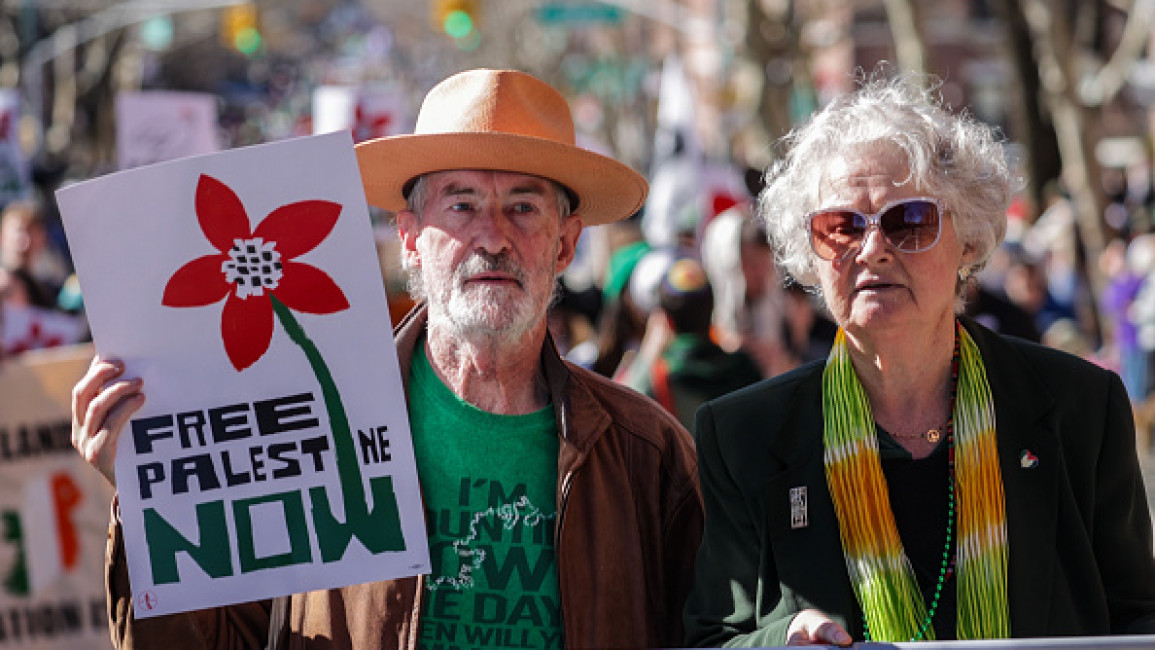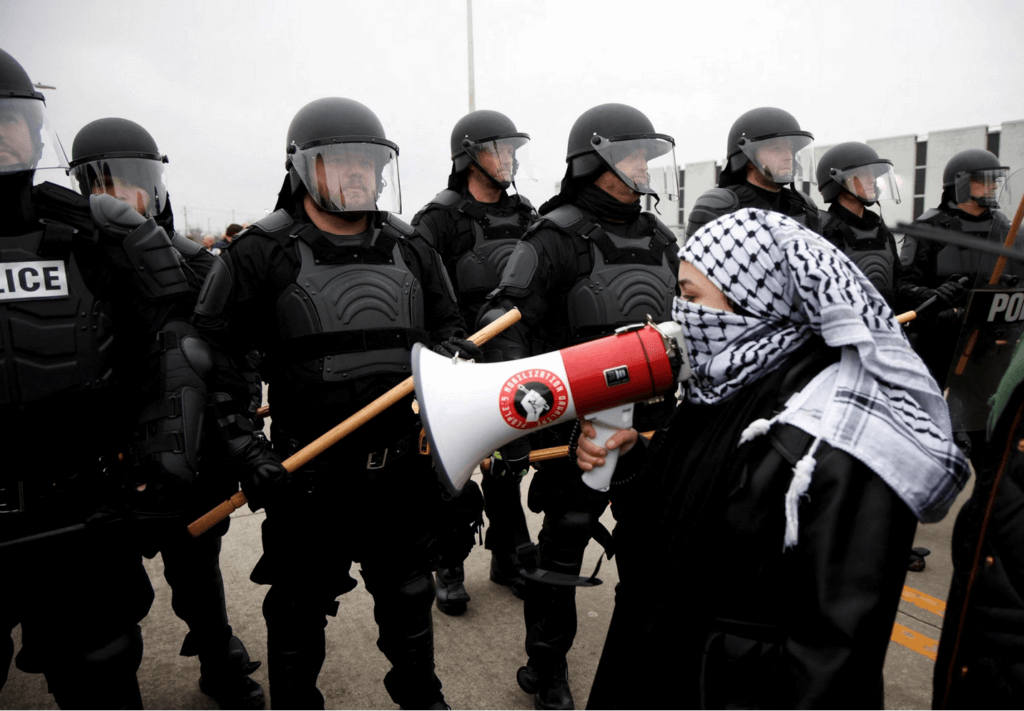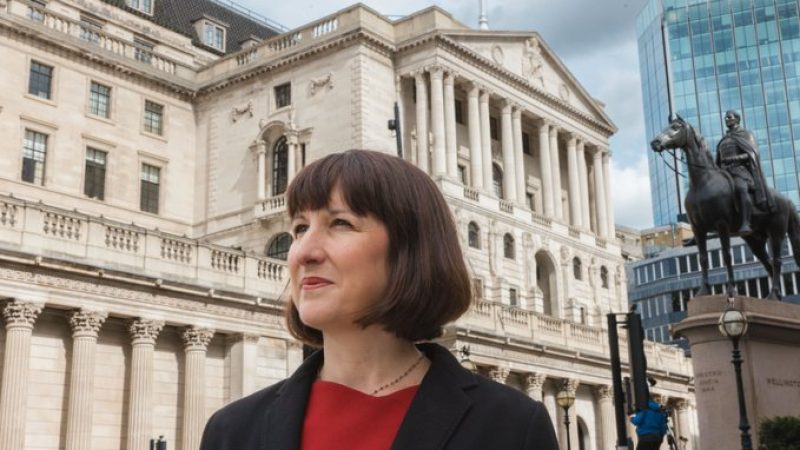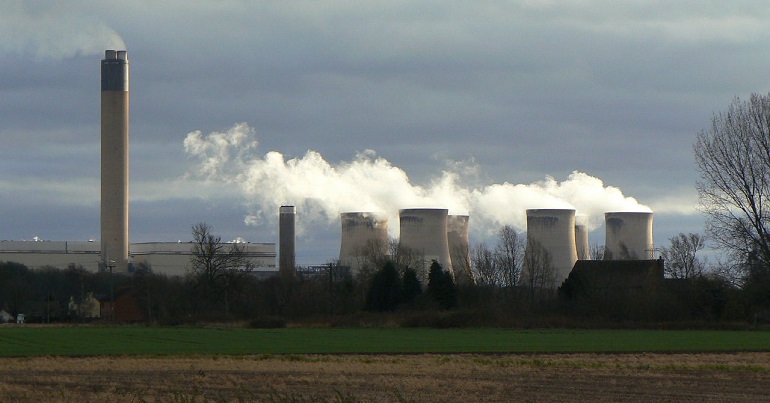Analysis: Palestinian sovereignty has always been out of the question for Israel, as have equal rights under one binational state.

Amal Ahmad
12 March, 2024
To understand Hamas’s attack on 7 October and Israel’s subsequent onslaught on the Palestinian population of Gaza, it is necessary to accurately evaluate the underlying historical strategic interests of the Israeli state.
In this sense, the ongoing crisis reflects both opposition to, as well as the unsustainability of, Israel’s longstanding strategy of a ‘no-state solution’ for the Palestinian people.
Salient narratives
To understand this strategy, it is informative to first turn to salient arguments about why past peace treaties, most notably the Oslo Accords, have failed to achieve a resolution.
Brokered by the US, the agreement of 1993 promised a sovereign Palestinian state within five years, with Israel withdrawing from the occupied territories in exchange for Palestinians meeting Israeli security demands - also known as the ‘land-for-peace’ paradigm.
As the accords could only succeed via self-enforcement, the key premise was that Israel and the Palestinians were strategically interested in withdrawal and in meeting security conditions, respectively.
"Israel as an occupying power has consistently pursued not two states, operationalised through withdrawal and land-for-peace, but no state (for Palestinians)"
For Israel, the assumption was that improved security relations with the Palestinian population made withdrawal more valuable than indefinite occupation and settlement.
The failure of negotiations to generate land-for-peace signifies that at least one of the party’s strategic interests is not aligned with this setup, and a pervasive narrative in the West has been that it is Palestinian interests which are incompatible with land-for-peace.
The logic is that conflict persists because of Palestinian violence and that Israel would otherwise be interested in withdrawal.
Israel's no-state solution
This narrative fails to explain why Palestinians would resort to violence when a state would otherwise be on offer, when they were already struggling to secure sovereignty five years into the accords despite limited militant action during that period.
It also fails to explain why Palestinians in the occupied West Bank, where militancy is largely suppressed, have seen only deteriorations in prospects for sovereignty and rapid Israeli settler expansion, not withdrawal.
To seriously evaluate Israel’s strategic priorities, pointing to non-binding treaties around withdrawal is insufficient. By contrast, Israel’s historical efforts to construct expensive and difficult-to-remove illegal settlements are a credible indicator of where the interests of the Zionist national project lie.
RELATEDAnalysisQassam Muaddi
The Jewish settlement project that culminated in Israel’s establishment in 1948 continued in the Palestinian territories it occupied in 1967. Israel immediately began demolishing Palestinian homes and rebuilding them for Jewish settlement, and the “Allon Plan” was put forth to create separate and non-contiguous enclaves for Palestinians while annexing the remaining lands. By 1978, the government had spent 2.3% of its GDP on settlement construction and was incentivising Jewish settler inflow through financial assistance.
Throughout this period, Israeli leaders from an array of factions united in viewing settler expansion, not withdrawal, as a national strategic priority. Yitzhak Rabin, prime minister in the 1970s and later again during the Oslo Accords, declared that settlements increase Israel’s security and that it is imperative to “renew” and “expand” them.
Ariel Sharon, also later prime minister, put forth massively expansionary plans for belts of settlements, efforts meant explicitly to create “facts on the ground” to prevent future withdrawal and a Palestinian state.
When Israel signed the Oslo Accords in 1993, it refused to commit to a clear settlement withdrawal plan, and Rabin remained frank internally that Israel “wants a Palestinian entity which is less than a state,” that it “will not return to the lines of 1967”, and that it will build further settlements.
From 1993 to 1996, Israel had - instead of retrenching even one settlement - expanded the number of settlers from 250,000 to 305,000.
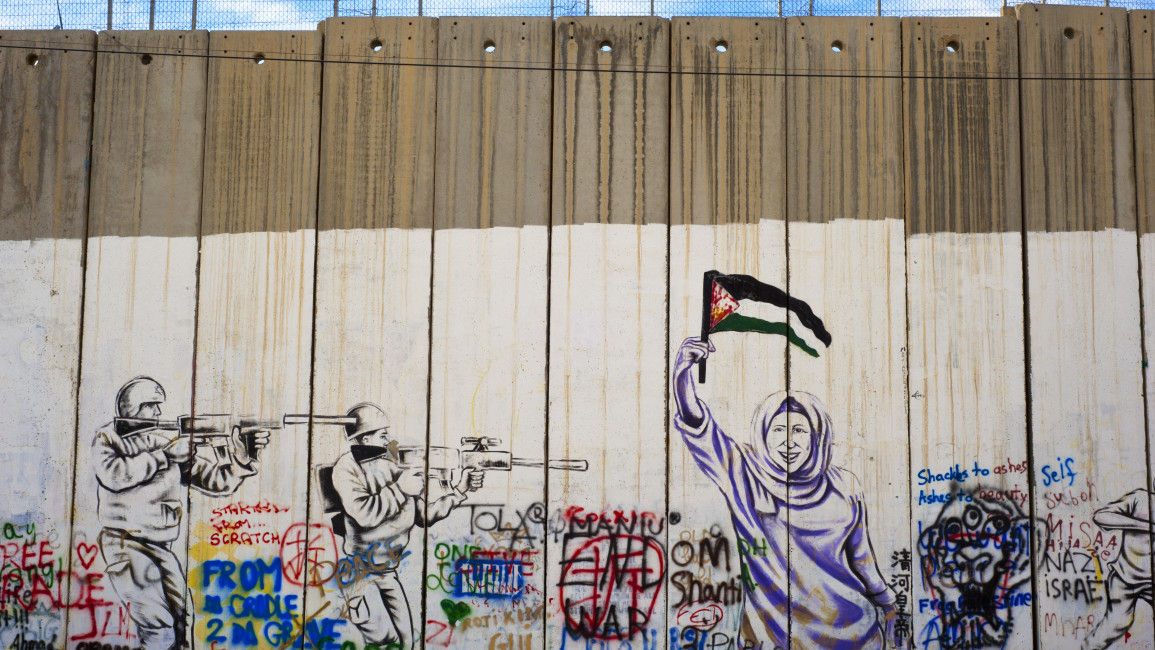
Since then and under the cover of a dragging peace process, Israel has continued nonstop settlement expansion, with 850,000 Jewish Israelis today settling 40% of the occupied territory. In Gaza, the evacuation of 8,000 settlers in 2005 was not part of a general retrenchment in the expansionist project nor of any end to the occupation, as it was accompanied by an ongoing military blockade which tightened Israeli control over the borders, airspace, and water of Gaza.
By continuously settling Jewish Israelis in the occupied Palestinian territories and thereby ruling out a geographic entity that can become a Palestinian state, while also ruling out that these segregated Palestinians under its control receive equal citizenship rights, Israel has long pursued a no-state solution toward the occupied population.
Palestinian sovereignty, which can only emerge from settlement evacuation and relinquishment of Israeli control over borders, has always been out of the question, as have equal rights under one binational state.
Disagreements between Israeli policymakers have instead centred around the desirability and form of limited Palestinian self-administration over these segregated enclaves.
"From an Israeli perspective - up until 7 October - Israel had been able to pursue expansionism while keeping a tight grip on security matters within its borders"
Top strategic priority and 'peace-for-peace'
As Israel’s erection of settlements - and with it the no-state solution for Palestinians - has been continuous and not conditional on Palestinian actions, it cannot be understood as a tactical “reaction”. Rather, it must be viewed in light of its strategic value to the Zionist project.
The Achilles heel of the peace process was assuming that Israel views Palestinian statehood as necessary to its security, so that the benefits of withdrawal would outweigh Israel’s interest in expansionism.
In fact, from an Israeli perspective - up until 7 October - Israel had been able to pursue expansionism while keeping a tight grip on security matters within its borders. This has happened partly through security cooperation with the Palestinian Authority but largely through massive retaliatory attacks on population centres from where militants emerge.
The notion that asymmetric warfare on civilian populations acts as deterrence – codified in the “Dahiya doctrine” of the IDF - implied that Israel does not have to cede any occupied lands or rights to the Palestinian population to be secure.
RELATEDIn-depthSahar Amer
For Israel, not only did the no-state solution not endanger physical security to the extent which would make withdrawal imperative, but it may have also contributed to a more insidious type of demographic security.
A Palestinian state would reduce the number of non-Jewish people in areas directly controlled by Israel but would not necessarily help uphold the system of preferential rights for Jews versus non-Jews in Israel, which is integral to the Zionist project.
Palestinians in Israel and diaspora refugees are unlikely to accept transfers to a state in the occupied territories; they may even be emboldened to demand equal rights of citizenship and to return to their homelands if such a state were to emerge.
In this case, preferential rights for Jews in Israel cannot be guaranteed and may even be undermined through concessions of rights to pockets of Palestinians, and the Palestinian “problem” for Israel would have no solution except permanent containment.
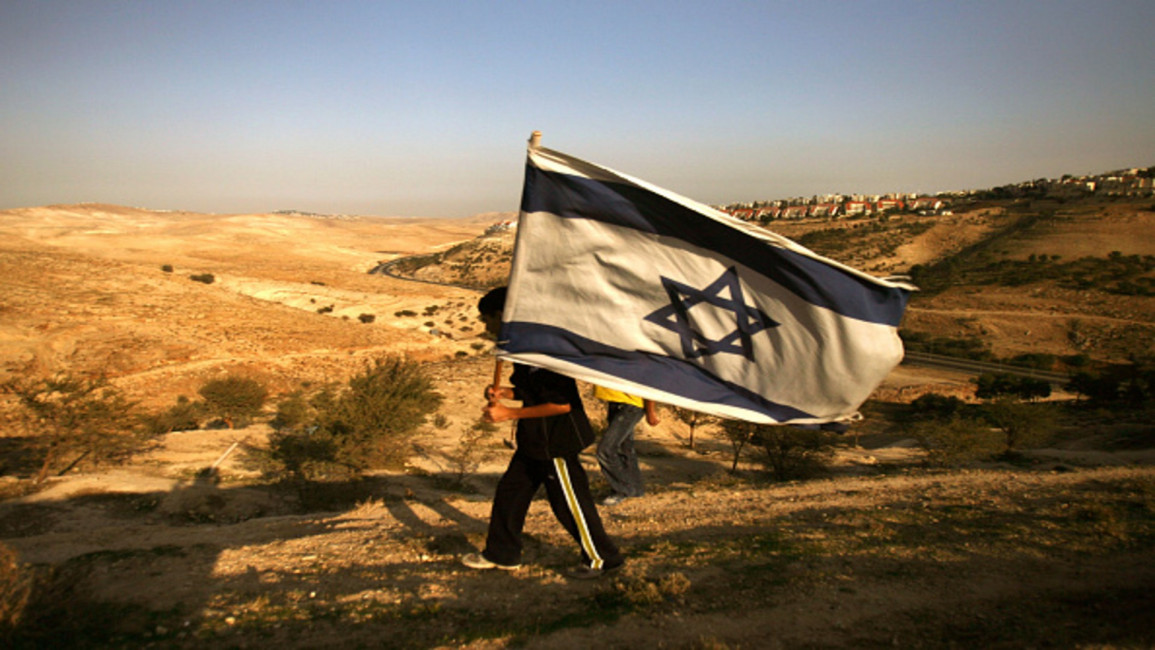
In sum, Israel as an occupying power has consistently pursued not two states, operationalised through withdrawal and land-for-peace, but no state (for Palestinians), operationalised through settlement expansion and “peace-for-peace”.
In the latter - despite its innocuous name - Palestinians are offered neither withdrawal nor equal rights in exchange for Israel’s peace, but rather a “peace” in which they are spared from massive Israeli bombing (and, now, starvation) campaigns.
This threat of hugely asymmetric attacks on civilian populations is used to guarantee Israel’s security as it maintains its occupation and system of preferential rights, and as it enacts the “lower intensity” everyday violence of occupation and segregation on the Palestinians.
"The Achilles heel of the peace process was assuming that Israel views Palestinian statehood as necessary to its security, so that the benefits of withdrawal would outweigh Israel's interest in expansionism"
An untenable strategy
In this context, the 7 October attack can be understood as a violent strategy to challenge Israel’s no-state strategy and peace-for-peace doctrine to perhaps the greatest extent since 1948, with the backdrop that prior negotiations - based on land-for-peace - had proven ill-suited for such a challenge.
The attack signified gruesomely that the threat and exercise of Israeli military power may no longer be sufficient to keep Israel secure if the latter is unwilling to cede a political solution, the no-state solution being unacceptable to Palestinians.
Similarly, given one of its likely objectives was to halt Israeli-Saudi normalisation, the attack was meant to signal that side-lining the demands of the Palestinians does not guarantee peace, not for Israel nor the region.
RELATEDIn-depthJessica Buxbaum
On the Israeli side, it is precisely because 7 October challenged the foundational assumption under which the state has operated - that it can contain Palestinians in perpetuity without impacting its own security - that the attack was viewed as a strategic threat of the highest order.
Israel’s unprecedented levels of retaliation against the civilian Palestinian population come as a brutal attempt to reinforce the prevailing security doctrine. At the same time, because 7 October demonstrated that Israeli bombing campaigns on population centres (à la 2008, 2014, and 2021 on Gaza) may not be sufficient to deter opposition to Israeli strategy, Israel now also views ‘eliminating Hamas’ as necessary.
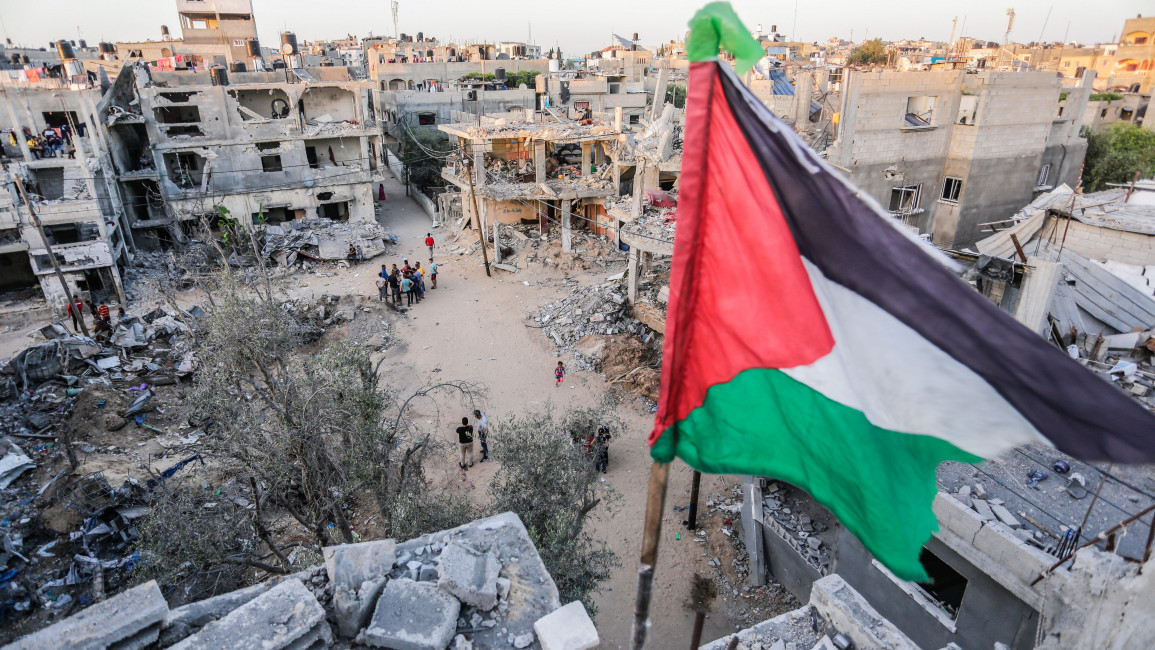
This is even though it seems increasingly unlikely that eliminating Hamas is achievable even with vast US military support.
If Israel refuses to acknowledge and address the political roots of 7 October - Palestinian opposition to Israel’s no-state solution - then the options amount to further Israeli war crimes involving ethnic cleansing and annihilation of Palestinian communities, while in the long-term Palestinian endurance and resistance are unlikely to cease without an end to the repression.
Israel’s allies, meanwhile, would be wise to understand that their trusted ally has failed to ensure - even after 75 years of leeway and military might - that the Palestinian “problem” can be managed without a just political resolution, and to realise that Israel’s insistence on preferential rights for the populations under its control is a recipe for continued disaster.
Amal Ahmad is a Palestinian academic economist based in the Netherlands and a member of Al-Shabaka, an independent Palestinian policy think tank


